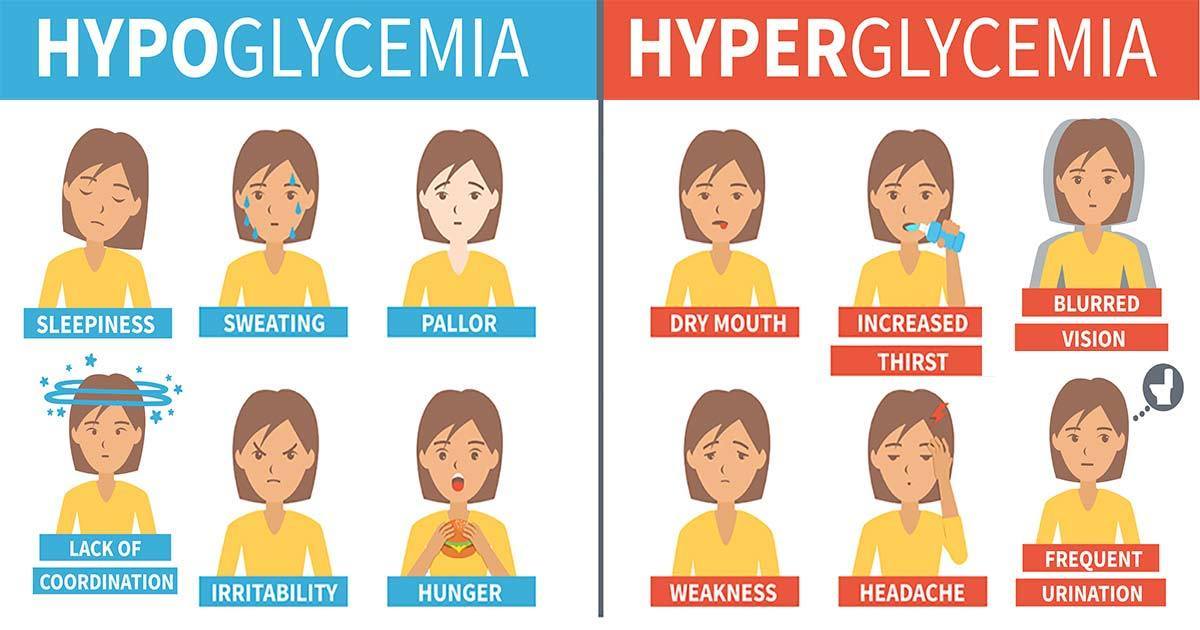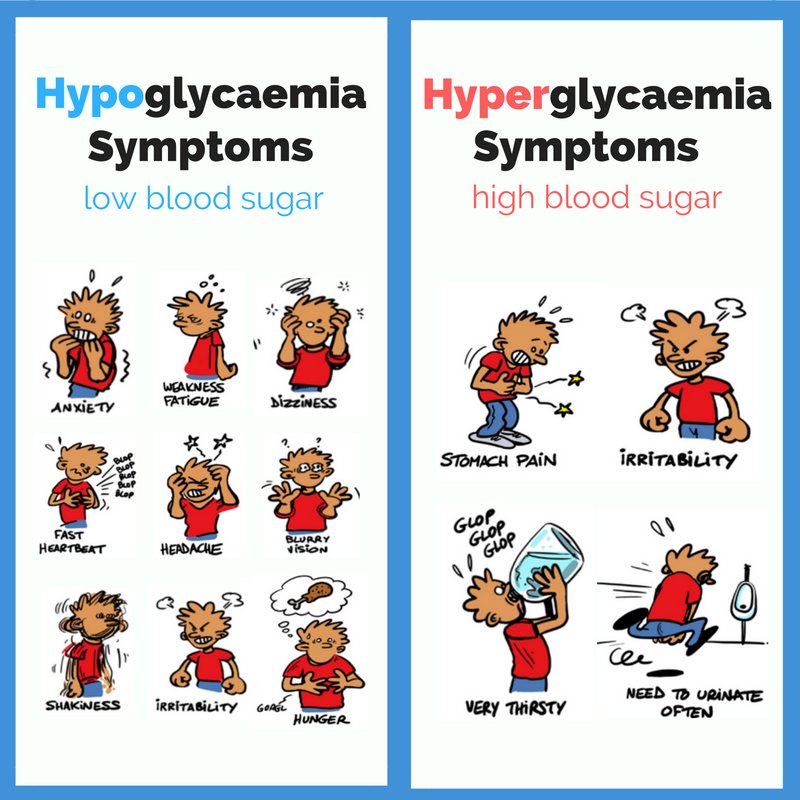Diabetes Hypo
Possible causes, without diabetes. hypoglycemia in people without diabetes is much less common. causes can include the following: medications. taking someone else's oral diabetes medication accidentally is a possible cause of hypoglycemia. other medications can cause hypoglycemia, especially in children or in people with kidney failure. The full name for a hypo is hypoglycaemia. it’s when your blood glucose level (also called blood sugar) is too low, usually below 4mmol/l. low blood sugar can happen if the balance of diabetes medication you take (especially insulin), food you eat and physical activity you do sometimes isn’t right. Continued preventing hypoglycemia. if you have diabetes, ways you can prevent hypoglycemia include: follow your meal plan. eat at least three evenly spaced meals each day with between-meal snacks.



Your best bet is to practice good diabetes management and learn to detect hypoglycemia so you can treat it early—before it gets worse. monitoring blood sugar, with either a meter or a continuous glucose monitor (cgm), is the tried and true method for preventing hypoglycemia. syndrome de fatigue chronique infections du colon démence diabète de type ii désordres digestifs hypertrophie de la rate épilepsie maladies de l'oeil fibromyalgie litiase biliaire maladies génito-urinaires hémorragies herpès simplex contrôle hormonal et régulation de l'immunité influenza jaunisse hémorroïdes maladies nerveuses maladies neurologiques : surdité et mutisme, retards mentaux infections respiratoires rétrovirus ulcères d'estomac virus affectant le système digestif tuberculose déséquilibres de la thyroïde : hyper, hypo et cancer usage externe : traite les blessures ouvertes More diabetes hypo images. If you have type 1 or type 2 diabetes and need insulin to control your blood sugar, taking more insulin than you need can cause your blood sugar level to drop too low and result in hypoglycemia. your blood sugar can also drop too low if, after taking your diabetes medication, you eat less than usual (most of the body's glucose comes from food.
Type 1 Diabetes Hypoglycaemia Hypos Nhs
Hypoglycemia Diet Best Worst Foods For Hypoglycemia
Hypoglycemia, also called low blood glucose or low blood sugar, occurs when the level of glucose in your blood drops below normal. for many people with diabetes, that means a level of 70 milligrams per deciliter (mg/dl) or less. your numbers might be different, so check with your health care. A hypo (hypoglycemia) is triggered when blood sugar levels fall under 4 mmol/l. too much insulin or too little food can spark a hypo. this guide details what hypoglycemia is, how to recognise hypo symptoms, and what to do when you or your child is suffering from a hypo (hypoglycemia).
You must do something as soon as you notice symptoms of a hypo, or if a blood test has shown your blood glucose levels (also called blood sugar) are too low. if you don’t act quickly, it could get worse and you could start feeling confused and drowsy. you could also become unconscious or have a fit. this is called a severe hypo, and you would need help to treat it. Hypoglycemia is a condition in which your blood sugar (glucose) level is lower than normal. glucose is your body's main energy source. hypoglycemia is often related to diabetes treatment. but other drugs and a variety of conditions — many rare — can cause low blood sugar in people who don't have diabetes. The full name for a hypo is hypoglycaemia. it’s when your blood glucose level (also called blood sugar) is too low, usually below 4mmol/l. low blood sugar can happen if the balance of diabetes medication you take (especially insulin), food you eat and physical activity you do sometimes isn’t right. not everyone with diabetes will have hypos.
See more videos for diabetes hypo. cardiac failure, cardiac asthma: • endocrinal and metabolic disorder diabetes mellitus (i&ii); hypo and hyperthyroidism; obesity: metabolic syndrome • obstetrics and Hypoglycemia is when blood glucose levels fall below 4 mmol/l. hypoglycemia in relation diabetes hypo to diabetes is often abbreviated and referred to as a hypo. hypos are more likely to occur for people taking insulin or a type of tablets called sulfonylureas. A hypo is a very low blood sugar whereas the high levels you describe are a hyper and do come with the need to urinate more often. if you’re not on insulin then they can be tricky to treat very quickly but staying hydrated is important.
Non-diabetic diabetes hypo hypoglycemia is a condition that causes the sugar (glucose) in your blood to drop too low. this can happen in people who do not have diabetes. the 2 types of non-diabetic hypoglycemia are fasting hypoglycemia and reactive hypoglycemia. fasting hypoglycemia often happens after the person goes without food for 8 hours or longer. me depression resources diet help testimonals affiliate program diabetes low blood sugar reactive symptoms tiredness hypo resources privacy policy tell your story could you world's best insulin dose calculator that predicts hypos and blood sugar levels hours ahead designed for people with type 1 diabetes and those using insulin regulated device hideme
Low carb program join 430,000 people on the award-winning education program for people with type 2 diabetes, prediabetes and obesity. hypo awareness program the first comprehensive, free and open to all online step-by-step guide to improving hypo awareness. diabetespa your diabetes personal assistant. monitor every aspect of your diabetes. Hypoglycemia is a condition that occurs when the sugar levels in your blood are too low. many people think of hypoglycemia as something that only occurs in people with diabetes. Hypoglycemia is a condition that occurs when the sugar levels in your blood are too low. many people think of hypoglycemia as something that only occurs in people with diabetes. So can taking too much insulin or diabetes medication. if you get hypoglycemia, use the diabetes hypo 15-15 rule: eat or drink 15 grams of carbohydrates, wait 15 minutes, and then check your blood glucose.
People with diabetes get hypoglycemia (low blood sugar) when their bodies don't have enough sugar to use as fuel.. it can happen for several reasons, including diet, some medications and. Diabetic hypoglycemia occurs when someone with diabetes doesn't have enough sugar (glucose) in his or her blood. glucose is the main source of fuel for the body and brain, so you can't function well if you don't have enough. Hypos while sleeping. hypos can happen while you sleep. if a hypo doesn't wake you up, there's a risk of you having a severe hypo. you might be having night-time hypos if you you feel very tired when you wake up, have a headache, or have damp bedding. if you think you're having hypos while you sleep: check your blood glucose before bed.

Learn more about what to do if you're having a hypo on the diabetes uk website. not being aware of a hypo. some people have no clear signs they're about to have a hypo. this can happen if you have had type 1 diabetes for a while. it can be dangerous, particularly if you're driving, and puts you at risk of a severe hypo. constipation dandruff dark circles and blemishes depression detoxification diabetes immune system support incontinence indigestion infertility inflammation law regarding enforcement of a restraining order ? 3 hypos (assume i got a restraining order against you)
Comments
Post a Comment